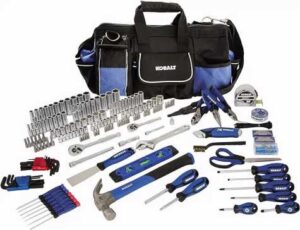
Preparing for one of India’s most competitive engineering entrance exams, JEE Advanced, requires more than just understanding concepts and memorizing formulas. One of the most powerful yet underrated tools in your preparation arsenal is the JEE Advanced previous year question papers. These papers are more than just past questions they’re a blueprint to success, providing deep insights into the exam pattern, frequently asked topics, and the evolving nature of questions.
1. Understand the Exam Pattern and Question Trends
JEE Advanced is known for its unpredictable and challenging paper format. Practicing previous year question papers helps aspirants familiarize themselves with the structure of the exam, including the number and types of questions—such as single correct, multiple correct, comprehension-based, and integer type questions. By solving these papers, students can identify patterns and recurring themes in the questions, enabling more focused study sessions.
For instance, by reviewing past papers, it becomes clear which chapters from Physics, Chemistry, and Mathematics are frequently tested. This allows students to allocate their time and energy more efficiently, ensuring that high-weightage topics are well-covered.
2. Improve Time Management and Speed
One of the biggest challenges in JEE Advanced is managing time effectively during the exam. The difficulty level and the lengthy nature of some questions can be overwhelming. Regular practice with previous year papers trains the brain to think faster, improves calculation speed, and builds endurance for sitting through long exams.
Timed practice also simulates real test conditions, helping students learn how to pace themselves and reduce the risk of running out of time or making silly mistakes due to pressure.
3. Boost Accuracy and Reduce Negative Marking
JEE Advanced penalizes incorrect answers through negative marking, making accuracy crucial. By solving past papers and analyzing their mistakes, aspirants can develop a better sense of question interpretation and answer validation. This practice encourages strategic thinking—knowing which questions to attempt and which to skip.
With enough practice, students can refine their problem-solving techniques and build confidence in their abilities, ultimately reducing errors during the actual exam.
4. Self-Evaluation and Progress Tracking
Previous year papers serve as an excellent self-assessment tool. They allow aspirants to track their progress over time and identify strengths and weaknesses. After each practice session, students can review solutions and measure improvement in performance, helping them adapt their study plan dynamically.
Moreover, comparing performance across multiple papers highlights areas that consistently need more work, allowing for targeted revision rather than broad, unfocused study.
5. Psychological Preparation and Confidence Building
The fear of the unknown can be a major hurdle for JEE Advanced aspirants. By solving numerous previous year question papers, students gain clarity on what to expect in the exam. This familiarity reduces exam-day anxiety and boosts confidence, ensuring a calm and focused mindset when it matters most.
Conclusion
Incorporating Bihar Police Constable Mock Test into your study plan is a smart, strategic move that can significantly enhance your preparation. From understanding exam patterns to building confidence, these papers are a must-have resource for every serious aspirant. Make them a regular part of your prep journey—and take one step closer to securing a top rank in the JEE Advanced.






